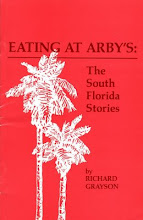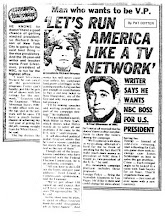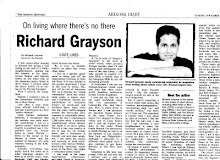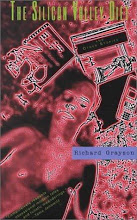
This evening we took the A train to Dyckman Street and walked across Broadway to Fort Tryon Park, where, on the Dongan Lawn, we saw an utterly delightful production of Susanna Centlivre's classic 1709 comedy The Busybody, shrewdly staged by the talented Bent Quill Players and directed by Irena Cumbow.

We honestly had never before heard of Susanna Centlivre although we vaguely knew about this play. Getting our graduate work in literature done over 35 years ago, we were educated only at the beginning of second-wave feminism and lots of women writers in British history were pretty much ignored. (Same thing in American lit: we and our friends thought we were cool because we knew Kate Chopin's The Awakening, but hard as it is to believe, we didn't learn about Zora Neale Hurston until the late 1970s when we were already teaching college.)

Anyway, The Busybody - or, in its original spelling, The Busy Body (or The Busie Body), is usually considered the amazing Centlivre's best play. It was certainly popular, being performed like 400 times in the eighteenth century. This is F.P. Locke, writing in the Twayne Publishers book on Centlivre:
As with most of Centlivre's comedies, the plot of The Busy Body centers on the problems and intrigues of two pairs of lovers. But contrary to her usual practice, in this play Centlivre pairs sparkish hero with lively heroine and quiet heroine with serious hero. Sir George Airy wants to marry Miranda: her guardian (Sir Francis Gripe) wants to marry her himself. Charles Gripe wants to marry Isabinda: her father (Sir Jealous Traffick) wants her to marry a Spanish merchant. The business of the play is to outwit father and guardian. . .
But it is the character of Marplot [the title character] that is the really new and distinctive feature of The Busy Body. . . His peculiar humor is his insatiable and usually unseasonable curiosity. . . in Marplot, Centlivre created a new kind of sympathetic humor character [and] the mainspring of the greater part of the action of the play. There can be little doubt that the character of Marplot was the chief reason for The Busy Body's popular success.

The hapless busybody here was played deliciously by James Santos. This cheerful, pesty buttinsky's attempts to help the romantic lives of his friends always end in disaster and often a beating. (Actually, the violence in the play is toned down here; it's weird how often people, especially women, are being beaten or threatened with being beaten.)

Santos successfully walks the fine line in making Marplot lovable despite his inept and ridiculous nature; he's not contemptible and we don't feel superior to him but laugh along with him as he always manages to screw things up. He's perpetually out of breath from running around or in pain from his frequent thrashings, yet this Marplot never loses his optimistic streak. He may be utterly dopey, but he's so well-meaning that you're always on his side.

This play isn't built upon witty lines like the Restoration comedies of Sheridan or Congreve; instead, it's a comedy of character, of intrigue (always marred by Marplot's blunders), and of really subtle humor. Even Steele, writing in The Tatler, noted (obviously this is really sexist by our standards):
The Plot and Incidents of the Play are laid with that Subtlety and Spirit which is peculiar to Females of Wit, and is very seldom well performed by those of the other Sex, in whom Craft in Love is an Act of Invention, and not as with Women, the Effect of Nature and Instinct.

In addition to James Santos as the eponymous antihero, the other actors were really effective. Chuk Obasi was impressive as Sir George Airy, in some ways the classic romantic hero - assertively masculine, thoughtful, kind and confident - but also touched by a more modern insecurity: he's in doubt as to Miranda's love for him (even if she and the audience never are). And he can do physical comedy really well, especially in the scene where he has to hide from Sir Francis (Miranda says she's got a monkey in there, but of course Marplot ruins everything).

As Miranda, the most assertive and resourceful of heroines, Aviva Laufer was wonderful. Sly without losing her sweetness, she can play as well at being prudish as being seductive. She's both adorable and strong in the way of Shakespeare's best heroines.

Sir Francis Gripe, Charles's greedy and lascivious father who's ward to both Miranda and Marplot, was played by a woman, Elspeth Shell-Moyer, who's as believable in this breeches role as the playwright apparently was as on the stage, according to contemporary reviews. You never really notice her gender, but perhaps it leavens for audiences today what is the horrible oppression of women so evident in the plot, something that might not seem so comic if you start to get angry about its unfairness.

As Sir Francis Gripe's playful, needy son Charles, Brad Harris was cheerful, lusty and perhaps a little bit dim - at least when compared to the women in the play (but of course, next to Marplot, he's a genius). He's especially funny in the scene where he pretends to be the Spanish nobleman Isabinda's father has contracted to marry her with (Sir Jealous is a great admirer of the way the Spanish treat women: even worse, of course, than the English do).

The little (bad) Spanish there, we noticed, piqued the interest of some of the children in the audience, who seemed remarkably interested in the play. Which reminds us: if you read the original text from the Gutenberg Project we linked to way above, the dialogue is a lot more archaic than the very natural-sounding lines we heard today, but even with the program, we're not sure who adapted Centlivre's words so effectively for the Bent Quill Players production.

Nevan Scott played the blustery Sir Jealous Traffic with aplomb. He's foolish and somewhat aware that he's foolish, but he's not going to let on. He's tyrannical with her daughter, cruel to his servant Patch, and quite violent (even if played with slapstick) to Marplot, but you never doubt that, unlike Sir Francis Gripe, this father is basically a benevolent despot.

Isabinda's role is somewhat thankless, because she's so put-upon and basically constrained by her father. Yet in Chet Siegel's performance, there's a hint of the spirit you suspect is lurking there, and she grows stronger in her initial refusal to marry the "Spanish nobleman" (in what must have been kind of shocking to an audience in 1709). Isabinda is a figure of sympathy, and at the happy ending, while you're glad for everyone, she is the one who whom you're happiest for.

Meaghan Cross, the co-founder of the Bent Quill Players along with the director Irena Cumbow, gives a truly remarkable performance as Patch. This is something of a stock role as the servant, but here Patch's ingenuity, her obvious intelligence (except maybe for Miranda, Patch is the smartest character in the play), and her determination make her admirable. She's the anti-Marplot, instead making things right even if she does screw up occasionally in a little bit of ditsy behavior.

This is a part you'd expect to be played by someone in a frumpy manner, but Cross's Patch actually seemed like the sexiest woman around - and that all the men in the play are completely oblivious to that because of Patch's low social status only heightened the social commentary implicit in this production (and in the original text, even if nobody noticed it back then).

The costumes were nicely unobtrusive (not too many distracting ruffles), the use of the Dongan Park Lawn superb (there was a central runway that the audience sat on both sides of, and action happened mostly on either side), and everything about this setting was wonderful. (Set design was by Beth Hintze.)

It had been a really long time since we were last in Fort Tryon Park. The first time we came here was in the summer of 1969, when we were 18, in the Mustang convertible of a 22-year-old boy from Marine Park we'd met through a personal ad in The East Village Other; he wanted to show us the Cloisters and Bud was especially interested in all those medieval reliquaries (we preferred the gardens) but then he eventually became a priest in an autocephalous Catholic that admitted noncelibate gays and lesbians. He remained a good friend for decades and we miss him.

The next time we came here was on Christmas Day 1972, with our girlfriend, before dinner with her family in the Bronx. There was snow on the ground and we tramped through the park near where we were today and it seemed really romantic.

Later, in the 1980s, when we mostly lived in Florida but spent summers and some autumns on the Upper West Side, we used to get our mail out of a P.O. box close by (the 10040 was the only Manhattan post office that didn't have a months-long waiting list) and would occasionally come to Fort Tryon Park, but before today, we hadn't been her in over twenty years and forgot how beautiful it is.

Anyway, the Bent Quill Players, under the direction of Irena Cumbow (assisted by Hannah Friedman and Chelsea Rodriguez), pulled off something pretty rare in this production of The Busybody.

There was a crowd of about 30 or 35 people, including kids, sitting on the grass, and the play got laughs and clearly intense interest. It deserves a wider audience (it will play this weekend and next, Fridays and Saturdays at 6 p.m. and Sundays at 1 p.m.) and more informed commentary than we've tried to provide here.


































No comments:
Post a Comment